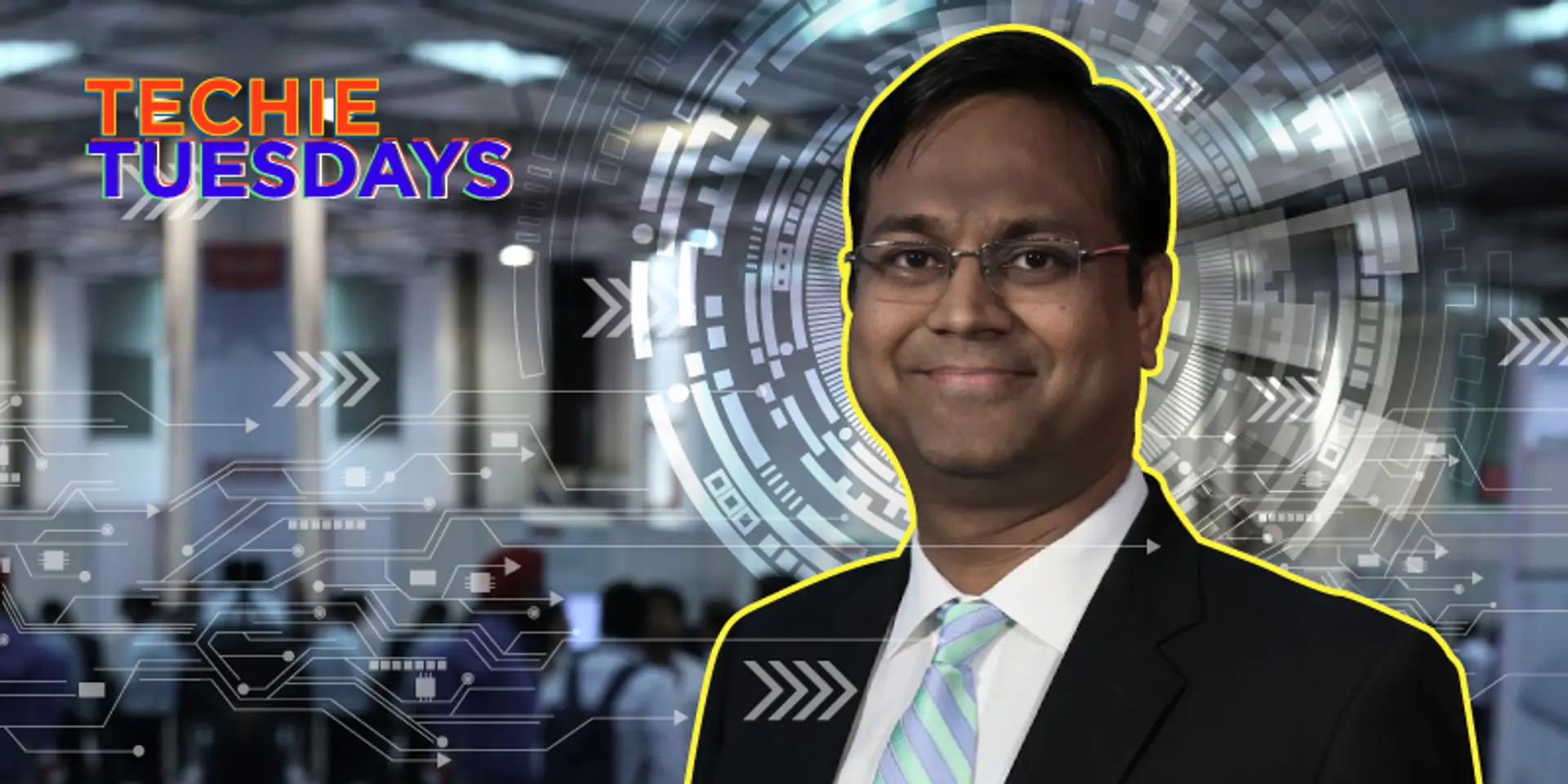Meet Mitesh Agarwal—the 'brain' of BITS who’s heading technology at Oracle India
In this week’s Techie Tuesdays, we bring you the journey of Mitesh Agarwal, the VP and India CTO of Oracle India. During his engineering days at BITS Pilani, this professional quizzer was a robotics genius and had even built a prototype of Mars Rover. But life had other plans for him, as to with whom he discovered his newly found interest and love.
I was excited to meet Mitesh Agarwal, VP and CTO of Oracle India, for two main reasons:
- I finally got to meet someone who scored more than my friend (who was a CBSE 2006 topper) in CBSE Class 12 board exam.
- We will be profiling a quizzing champ on Techie Tuesdays.
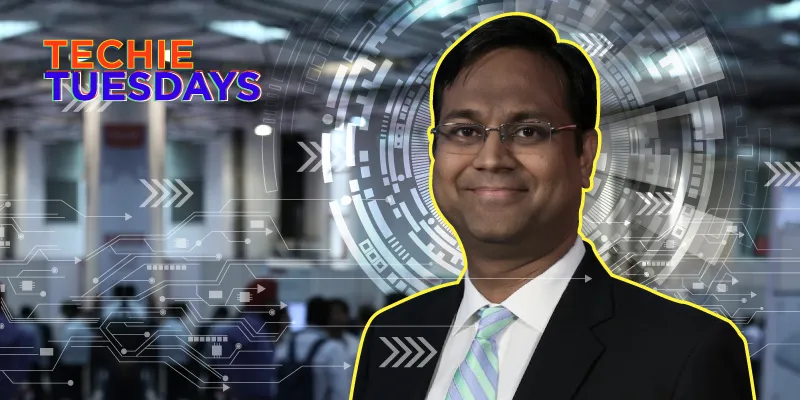
This is a story of a boy from Chennai, who took up quizzing, topped board exams, went to BITS Pilani, studied robotics, built a prototype of mars rover, got an admission at Carnegie Mellon University, and then went for a sales and marketing job.
I was as confused and curious as anybody would be. What’s even more surprising it that Mitesh didn’t make any sacrifices at any point.
In a conversation with YourStory, our Techie Tuesdays of the week, Mitesh opened up his school, college, and previous workplace diaries to share his journey of mastering the art of sales and technology.
Related read - Meet Sauvik Banerjjee, a Ranji trophy player who went on to architect Reliance Jio
The quizzer in the making
Mitesh was born in Titlagarh village of Balangir district in Orissa. His family then moved to Chennai where his father worked for Hindustan Motors till his retirement. Though his parents struggled to make ends meet, they were determined to put their kids in the best school. He says, “Though we come from a culture of being spendthrift, we would give importance to education.”
Mitesh studied at D.A.V. Gopalapuram and was extremely interested in extra-curricular activities during his school days. He thinks that it (interest in extracurricular activities) was developed by his father who had a great flair for writing and public speaking but couldn’t pursue either because of his six-day workweek (6 am–6 pm). Mitesh soon became the medal winner for his school in multiple activities. During one of the extra-curricular events in his class 8, it just happened that one of the three students in the quizzing team couldn't make it. Mitesh was then asked to participate. He recalls, “We won the quiz with me doing nothing. I just sat there.”
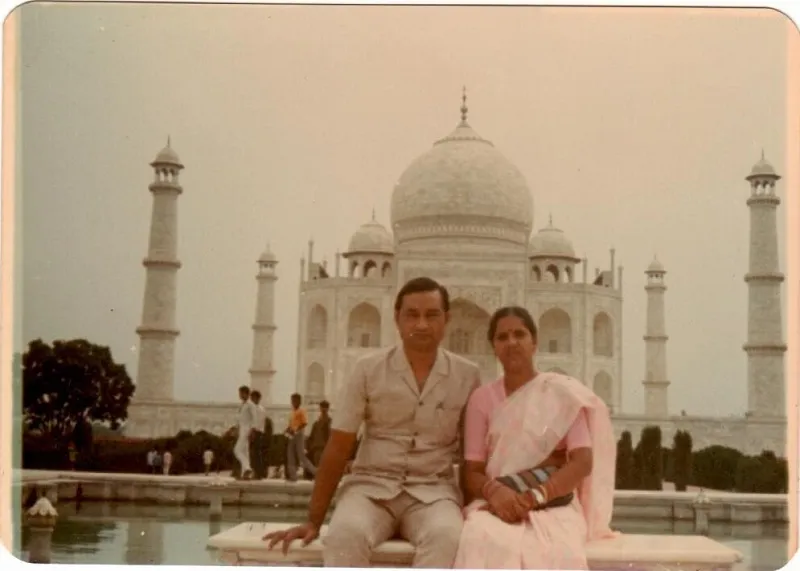
This incident sparked an interest in him. He then went up to one of his quizzing team partners and asked how he could become a good quizzer. He got the answer along with a notebook which he has even today and cherishes it. Over the next two to three days, he just read that. He then got into quizzing and tried to take part in the Bournvita Quiz Contest which was the most famous quiz back then. Unfortunately, he couldn’t make it to the school team because he came second that semester and the teacher decided to send the topper as the year before, the school team won the All India Bourvita Quiz Contest and two out of three students were toppers. Mitesh recalls, “The team didn't even qualify for Chennai finals. It was silly but I felt happy at that point of time. I eventually topped the class in final exams.”
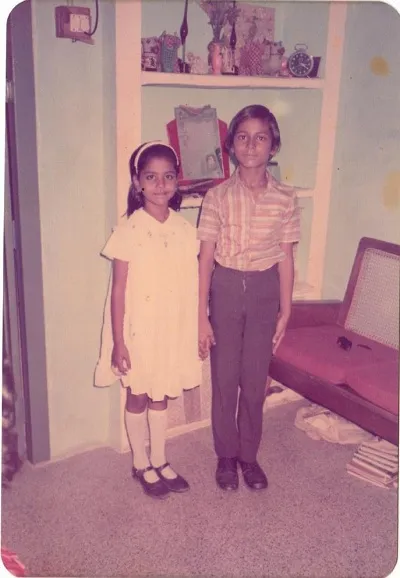
This incident made him work even harder to excel further in academics. He says,
I said to myself, ‘Never again I'm going to be second in class again'.
When Mitesh was in class 11, he used to attend about four private coaching classes for IIT JEE. But, he eventually discontinued as it took up most of his time and he couldn’t do anything else. He says, “I realised that if this is what it takes to get into IIT, then this is not who I am. My parents could see that it was impacting me and I started becoming average in a lot of things.”
To take out time for himself, he even got out of NCC. He practised for a week to make sure that his knees were touching each other while in attention position (one of the two ways he is asked to leave).
Just for scoring marks, Mitesh took up computer science when he was in class 11 and 12. He eventually scored 98.5 percent in Class 12. His love for quizzing made him read almost all the books available at the school library.
With Mitesh, D.A.V. Gopalapuram became the only school team which qualified for the 'North Star Quiz' back then. He then joined the Chennai chapter of the Quiz Foundation of India and was recognised for quizzing more than anything else.
Mitesh’s Vice Principal, who was also his mentor, encouraged him to join dramatics and soon realised that it was helping him further in quizzing. He says, “Because I started reading about Tolstoy, Kafka, Premchand, I got to know the things which I was generally not exposed to.”
Also read - Sandipan Chattopadhyay — the statistician behind the 160x growth of Justdial
“I’m what I am because of BITS Pilani”
After completing his schooling, Mitesh was all set to join the National Institute of Technology (NIT) Trichy [earlier known as Regional Engineering College (REC)]. A week before the commencement of the session, he got an admission letter to BITS Pilani. He recalls, “They weren't willing to disclose which branch I've been selected for. The fee for REC was Rs 20,000 for four years, whereas BITS was Rs 15,000 for each semester. Moreover, Trichy was much closer to Chennai than Pilani.”
Despite all these conditions, Mitesh’s father pushed him to join BITS Pilani. Mitesh was allotted B.E. (Hons.) in Chemical Engineering which he wasn’t interested in, so he opted for M.Sc. (Hons.) Physics. This way he had an option of choosing the dual degree in engineering based on his interest (and CGPA) in the second year.
In the first few months, Mitesh was ragged by his senior Kiran Bhat (a.k.a. God-Ki), who later on became his mentor and introduced him to robotics. Mitesh hardly attended classes in college ('no compulsory attendance' system also helped) and spent a lot of time in the robotics lab.
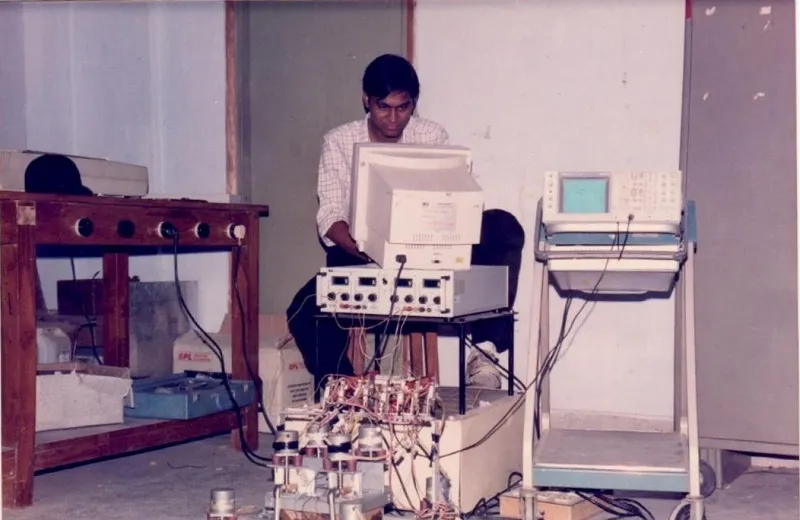
One of his seniors, Arpit Kaushik started a club called ‘Association of Rockers’ in the college and because of this Mitesh developed an interest in rock music. He became friends with the college band called HIV (which stands for Harmonically Inclined Vectors). He even befriended Amit Saigal, Founder of the Rock Street Journal – India's first rock magazine.
Since the people with whom Mitesh was close to were studying mechanical engineering, he also got inclined towards that field and opted for it in his second year.
Mitesh was also a part of English Languages Activities Society, English Drama Club, and Hindi Drama Club in the college. He says,
I don't know if I was an extrovert but people thought I was an extrovert and invited me for a lot of things.
His love for quizzing continued when he moved to college as well. In 1996, he went on to win the Brain of BITS, the most prestigious (and hardest) quiz in the college.
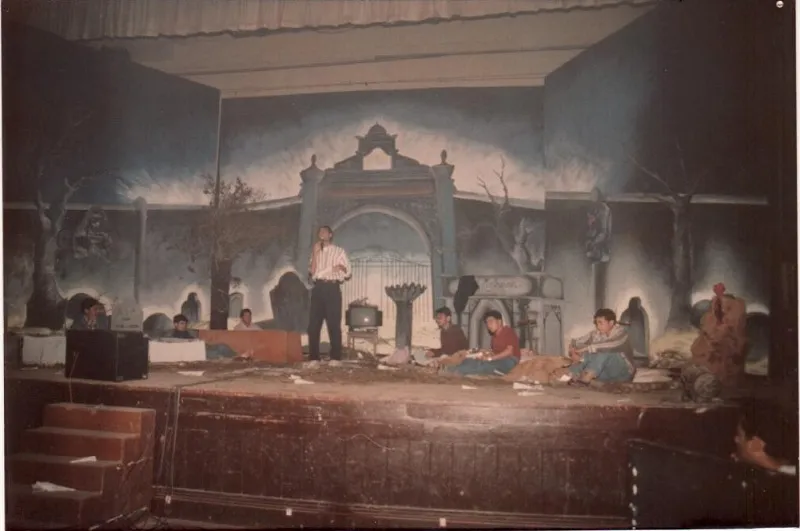
Mitesh, along with his robotics lab colleagues, manufactured four robots. He wrote two IEEE papers. He recalls, “We had built an initial prototype of Mars Rover, called Hydra. It was the first surface guiding robot on four legs.”
With Professor Nagrath’s guidance and mentorship, Mitesh secured admits to the computer science courses at Carnegie Mellon University and the University of Wisconsin, Madison. Mitesh wasn’t keen to sit for campus placements but his friends forced him to attend a pre-placement talk (which he did in his t-shirt and chappals while returning from the robotics lab). He was one of the two people selected for the job of Marketing Executive at Wipro.
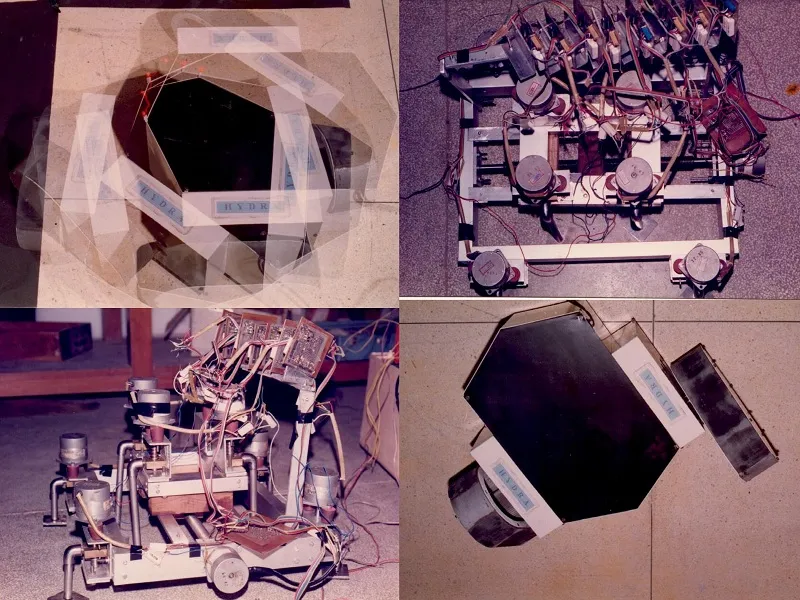
Mitesh was sure that he would go for higher studies until he went home that summer. When he found out that his father was diagnosed with cancer, he decided to take up the job at Wipro.
Mitesh says,
I remember everything about BITS. I may not remember a few things about my professional life. To me whatever I'm today, it's because of BITS. It gave me an amazing perspective on life and made me realise that you don't need to be completely academically oriented to succeed.
You may also like - Meet the chief architect of Aadhaar, Pramod Varma
From robotics to sales
Mitesh was a bit apprehensive about his work at Wipro but very soon, he started enjoying his work. He says, “I didn't know that I could be a technical person and yet be a part of sales.”
He was looking into the sales of servers, storage, and networking (basically infrastructural solutions) to manufacturing, pharmaceuticals, telecom, and service provider companies. He soon learnt about technology, architecture, and started performing the role of pre-sales person in the company. He explains,
The role of a pre-sales person is technological except that you're doing it for a deal. A pre-sales person is a technologist, thought not doing engineering R&D work. The designation pre-sales, solutions architecture, solution consultant, sales consultant, enterprise architecture, cloud architecture, are all interchangeable. The reason it’s called pre-sales is because a part of the salary is still paid depending on how well sales does.
Since he was selling to the likes of Head of Computer Science Department at IIT, he learnt a lot about technology. He says, “But soon I realised that they were still 10–15 years behind on the technology curve and that’s the gap I thought I could bridge. I'm a huge technologist at heart.”
According to Mitesh, the difference between an engineer in a product engineering group and as a pre-sales or solutions architect is that:
- The product engineer knows everything about the product really deep (an inch wide and a mile deep). They may not know the applicability in the larger context but they'll know everything about the technology deep.
- A pre-sales person learns, absorbs, and is more an inch deep and a mile wide.
At Wipro, he was getting acquainted with three areas:
- Networking – largely around the Cisco and the 3Com stack.
- WAN and LAN solutions
- Solutions around hardware server storage
Towards the later part, he also started covering things around the iPlanet suite since e-commerce had become hot in the 90s (US market).
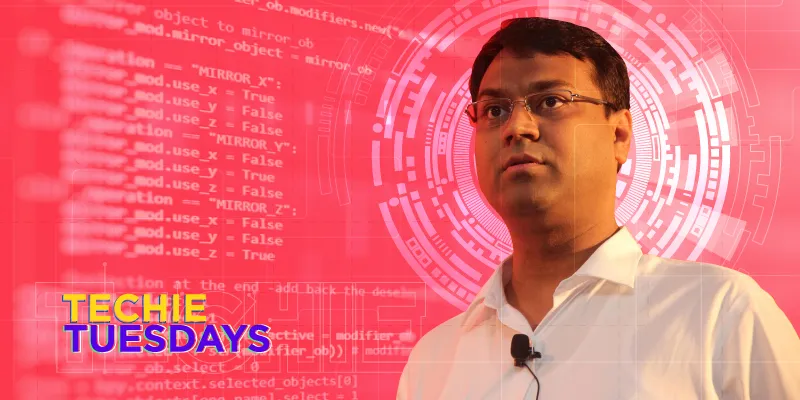
After three years, Mitesh joined Ramco because he wanted to move closer to his family in Chennai. Bill Gates had launched Ramco’s ERP product Marshal then which gave them popularity. They were starting an e-business solution and wanted Mitesh to set the sales and pre-sales for that in India and Singapore. In a few months, Mitesh realised that the company had great technology and great people but the culture didn't suit him. He experienced a learning-oriented culture at Wipro, whereas Ramco was relatively conservative.
Related read - Meet the co-creator of Julia programming language, Viral Shah
“I don't recall a moment when I wanted to leave”
After his stint at Ramco, Mitesh joined Sun Microsystems. At that time, Sun had a tagline – ‘We are the dot in dot com’ (which had to drop later after the dot com bust).
Recalling his interview with the then Country Director Anil Valluri, Mitesh says: “He had already made up his mind for someone else when I walked in to interview for the job. But he liked me as a young guy (who was) giving a sense of business and technology. And he decided to go with me.”
Mitesh found the people at Sun to be entrepreneurial in nature. Anil being a hobbyist himself encouraged Mitesh to continue quizzing which had slowed down due to his work life. Mitesh remembers that Bhaskar Pramanik, the then MD at Sun, said: "Integrity is doing what you say and saying what you do." He didn't care if someone comes to office late or left early, what matters is that if someone promises to deliver on a project/number/forecast, he/she better do that without being reminded. Mitesh liked the fact that both Anil and Bhaskar ran the organisation by empowering people. Scott McNealy, Co-founder of Sun Microsystems, had a phrase – Kick butt, have fun. Mitesh says,
His point was that we have to kick competitors butt all the time but at the same time if you're not having fun, then don't be in Sun. Till date, I don't recall a moment when I wanted to leave Sun.
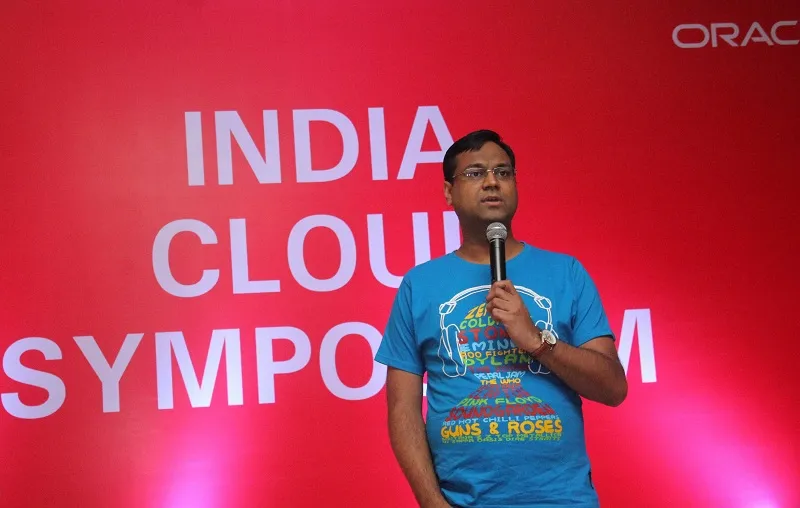
Coming from the partner organisation, Mitesh was now in a company which itself was a principal provider of technology. He had no excuse to go back (to the client) and say ‘I don't know’. He knew he had to be very good with technology and learnt how to simplify and articulate it. Mitesh also became a data centre and operating system ambassador representing India in global forums. He maintained internal websites for the company for 15 of its big categories. Mitesh kept his focus on technology and learnt about supercomputing, networks, and deep code elements in design. He says,
If you're not in touch with technology being a pre-sales person, then you'll tend to move towards sales.
One of the highlights at Sun Microsystems for Mitesh was setting up a design lab (using world's first supercomputing 64 processor server) at Centre for DNA Finger Printing and Diagnostics (CDFD). When organised retail revolution took place in India, Sun got 100 percent market share because Bhaskar decided to focus on it. Mitesh wanted to get experience across the zones which he got at Sun. He worked in oil and gas, education, government, BFSI, telecom, and retail sectors.
He loved his job because it was about bridging the gap for him where business guys don't understand the value of technology and the technology guys don't understand the value of business.
Also read - How a small-town commerce graduate became CTO of a multibillion-dollar company
The ‘pre-sales’ master & the CTO of Oracle India
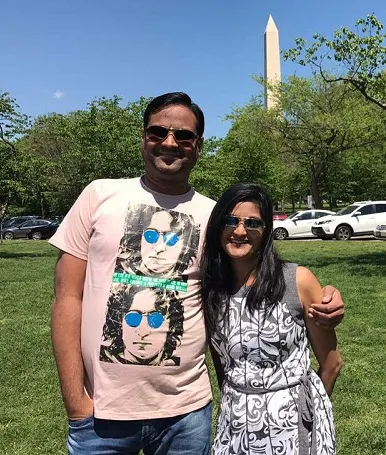
In 2009, Oracle acquired Sun for $7.4 billion. A lot of employees of Sun left the company thinking that Oracle may not do a lot for Sun. According to Mitesh, Oracle has instead done wonders for Sun. He says, “Oracle invested a lot more than the Sun had the capability of. There are a lot less experimental projects here but a lot more executed successful (and profitable) ones.” The engineering team of Sun continued to stay and today there are people who have spent two to three decades between Sun and Oracle.
Mitesh shares that in the beginning there was a little bit of conflict but slowly Oracle started realising that the kind of relationship that the Sun folks have with customers is amazing. He says, “We started getting recognised for it (customer relationships) in the company. The passion that we drove as 20–30 people who stayed back was considerable as compared to hundreds of existing ones in Oracle then.”
Then Managing Director Sandeep Mathur understood this and soon Mitesh got an opportunity to lead the team.
On his role, Mitesh comments, “As far as the title is concerned, I think there's only one CTO in Oracle, and that is Larry Ellison. The role I really play is bridging the gap between what engineering produces as product and what does an end customer want and what can a partner add as a value.”
Here are some examples where the pre-sales team (and Mitesh) triggered some key decision making and built a desirable product at Oracle:
- GST affects a lot of IT vendors in India who’ll have to make themselves GST compliant and change the taxation engine within their ERP product. This involves two transformations – ERP transformation of moving on-premise data to the cloud and adding GST localisation to it. This is a hyperlocal issue identified by the pre-sales team who then worked with the engineering team to get it done in a given time frame.
- Post demonetisation, every bank was flush with cash, which wasn’t good for them because banks make money only when they disburse that money in the form of loans or credit. How therefore could we (Oracle) help bank quickly start acquiring more customers? This problem was on multiple fronts – on acquiring customers, on opening account instantaneously and then being able to service the customer and then cross sell and up sell. In order to do it better and faster than others (banks), the solution should include customer experience product, core banking product, infrastructure product, mobility and chatbots, and a whole bunch of innovations around artificial intelligence. Mitesh and his team quickly came up with this as a module and went to the public/private sector bank with the solution.
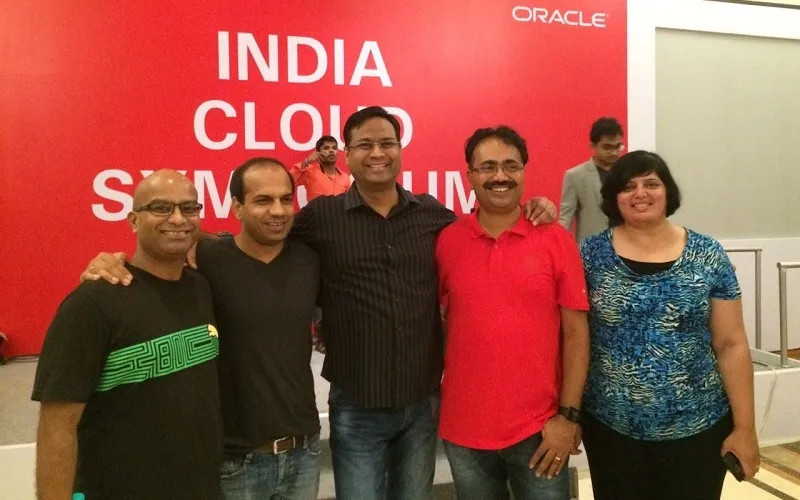
One of the things Mitesh did early in his career was to decide what he wanted to be in every one to two years. He then started putting elements of age to it. So, he was very clear that before he turns 40, he'll be a VP in Oracle. He recalls that even his wife wasn’t convinced about it in the beginning.
Even though presented with this opportunity multiple times, Mitesh isn’t keen to move to Silicon Valley. He feels that the opportunity and excitement is much more here. He says, “India is so vibrant and there's so much to do. There's this false notion that India is not adopting technology; India is way ahead.”
According to Mitesh, the biggest problem in India is of UX and UI, that is when someone comes to India and step out of the airport, it's their experience (quality of roads, traffic, etc.) which is bad.
Related read - Amit Ranjan—the entrepreneur who crossed the startup-government chasm
Hiring for pre-sales
While hiring, Mitesh looks for attitude as the most important factor in a candidate for a pre-sales role. He says, “The attitude is about the fire in the belly and the hunger to learn.” He uses an acronym called PACE within his team to find the best people:
- P stands for passion. It’s not about the emotiveness of that passion.
- A is for Attitude. Waking up every day and wanting to be positive is very important.
- C is customer focus. If you don't have customer focus you're in wrong business.
- E is for Excitement and Energy. Passion is very different from excitement. Passion is what you bring to the job. Excitement is what you bring to the workplace around you.
Mitesh believes that from a leadership aspect, the idea of simplicity is very important. He adds, “Simplicity comes from the element of focus. And it's important to have that in order to communicate the same to the team and the customers.”
Decisions and tough decisions
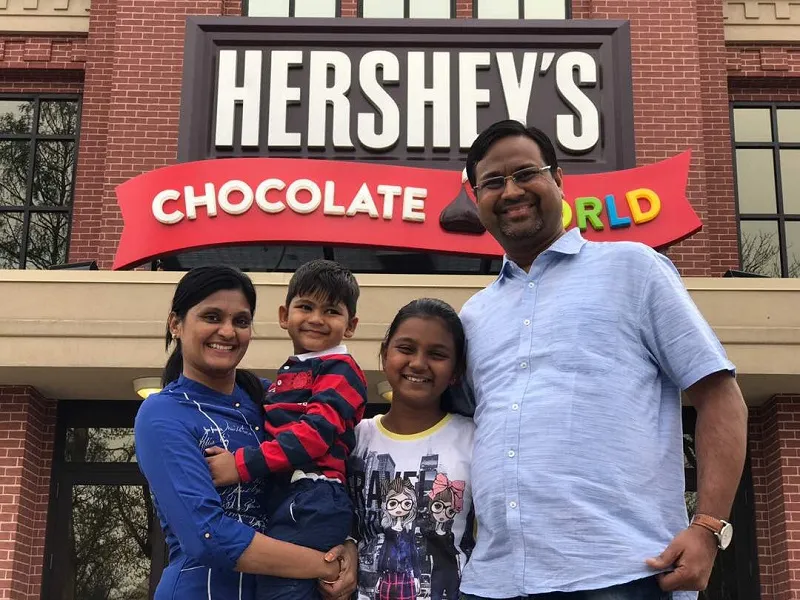
Mitesh follows the following golden principle for making decisions (both personal and professional) in his life:
How is the decision going to affect the key stakeholder? Is that key stakeholder a customer, employee? If it's not impacting him/her positively then there's something wrong with the decision however obvious it may be.
He considers himself a bit of white or black person who understands that the world is grey. He says, “We bring too many emotions into decision all the time. I take a decision without emotions.” He adds, “When I take decisions, it's clear that it's towards a goal. If it's not that means it's not my decision to take or I'm taking a wrong decision.”
He even tells his kids to set such high goals for themselves that it seems unachievable. He says,
You'll realise the day you'll achieve it(goal) that you could have aimed higher.
In his journey, Mitesh recalls taking many decisions that were not popular. He’s clear that he’s not here to please people. He believes in walking the talk and setting high standards.
You can connect with Mitesh on LinkedIn.
Since this is a profile of a quizzer, here’s a small trivia for all our readers:
Kiran Bhat, who was Mitesh’s college senior, recently won Sci-Tech Oscar for his work at Industrial Light and Magic (ILM)


